
While many people living with alpha-gal syndrome don’t feel adverse reactions after consuming cow’s milk and dairy products, their alpha-gal blood test results may still show a heightened sensitivity. If you want to replace traditional dairy in your diet, read on to discover the best milk alternative for alpha-gal syndrome.
The information provided on this site is based on my personal experience living with alpha-gal syndrome. I consistently cite and link to expert sources, but nothing published on this site should be perceived as medical advice.
Alpha-gal sensitivities vary by person. You should understand your dietary restrictions, making any adjustments needed, and directing any questions to your physician.
Even if you don’t break out in hives or double over with abdominal pain when consuming cow’s milk, if your alpha-gal blood work shows a heightened sensitivity to traditional dairy products, you may still experience a mild allergic reaction when you pour cream into your coffee, enjoy a double scoop of ice cream, or drink a tall cold glass of milk with a stack of Oreo cookies. Hey, at least the Oreos are vegan and safe for alpha gals!
When you cut dairy from your diet, you remove a good source of nutrients, especially calcium, and vitamins D, B2, and B12. You also lose other health benefits of drinking milk, potentially increasing your chances of bone diseases like osteoporosis. If that’s not concerning enough, with each cup of milk replaced by coconut milk, cashew milk, or rice milk, you cut about eight grams of protein from your diet.
And if you’re replacing traditional dairy products with non-dairy alternatives at the same time that you need to remove all mammalian meats from your diet, you may find yourself scrambling to find enough sources of protein to achieve your recommended dietary allowance (RDA).
If you want to replace mammalian milk, including cow’s-, sheep’s-, and goat’s milk, with a plant-based alternative, here is my ranking for the best milk alternative for alpha-gal syndrome.

To help offset the costs of running SageAlphaGal.com, you’ll find affiliate links lightly sprinkled throughout the site. If you choose to make a purchase via one of these links, there’s no additional cost to you, but I’ll earn a teeny tiny commission. You can read all of the legal blah blah blah (as my little niece says) on the full disclosure page.
In This Article
Replacing the Nutrients Found in Cow’s Milk
When I was diagnosed with alpha-gal syndrome, my doctor advised me not to eat beef, pork, or lamb and to stop consuming dairy products. Then she sent me on my way. There was no handout of good plant-based protein sources, no reminder of how much calcium a midlife woman should be consuming, and no heads-up about symptoms of a vitamin B12 deficiency.
But after a year of my reporting increasing concern to her over:
- Extreme fatigue and hair loss (symptoms of a protein deficiency),
- Pins and needles in my hands and feet (a symptom of vitamin B12 deficiency), and
- An initial bone density scan that revealed osteopenia (an early marker for osteoporosis)
she ordered blood tests that confirmed that there was a problem.
Based on this experience, my evaluation of milk alternatives focuses on good sources of the key nutrients found in cow’s milk.
Protein
According to the Mayo Clinic, the average American adult needs 0.8 grams of protein per kilogram of body weight. Alpha gals who are above the age of 40 (when it’s common to start losing muscle mass due to age) should consume 1 to 1.2 grams of protein per kilogram of weight, and those who exercise regularly should consume 1.1 to 1.5 grams of protein per kilogram of weight.
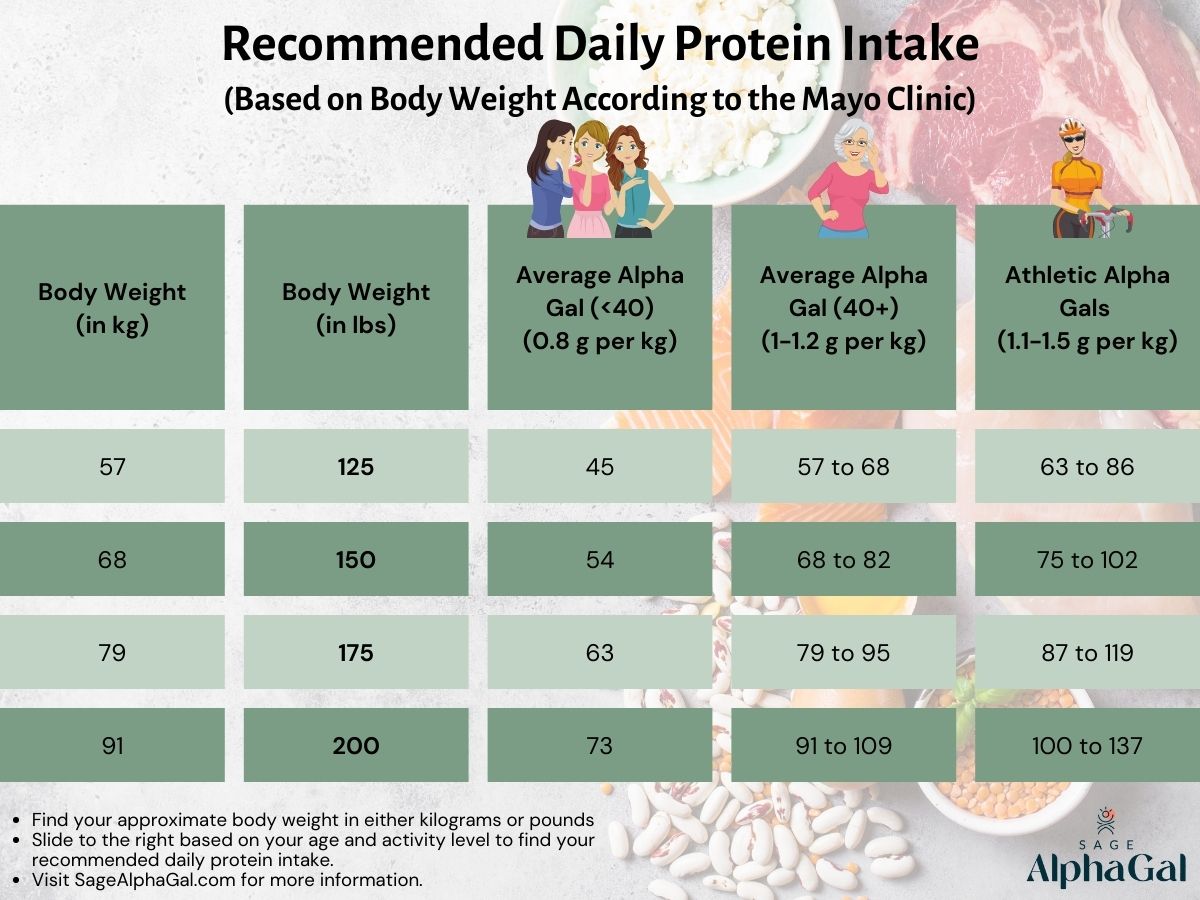
Signs you may not be getting enough protein include loss of muscle mass, weakness and fatigue, and skin, hair, and/or nail problems.
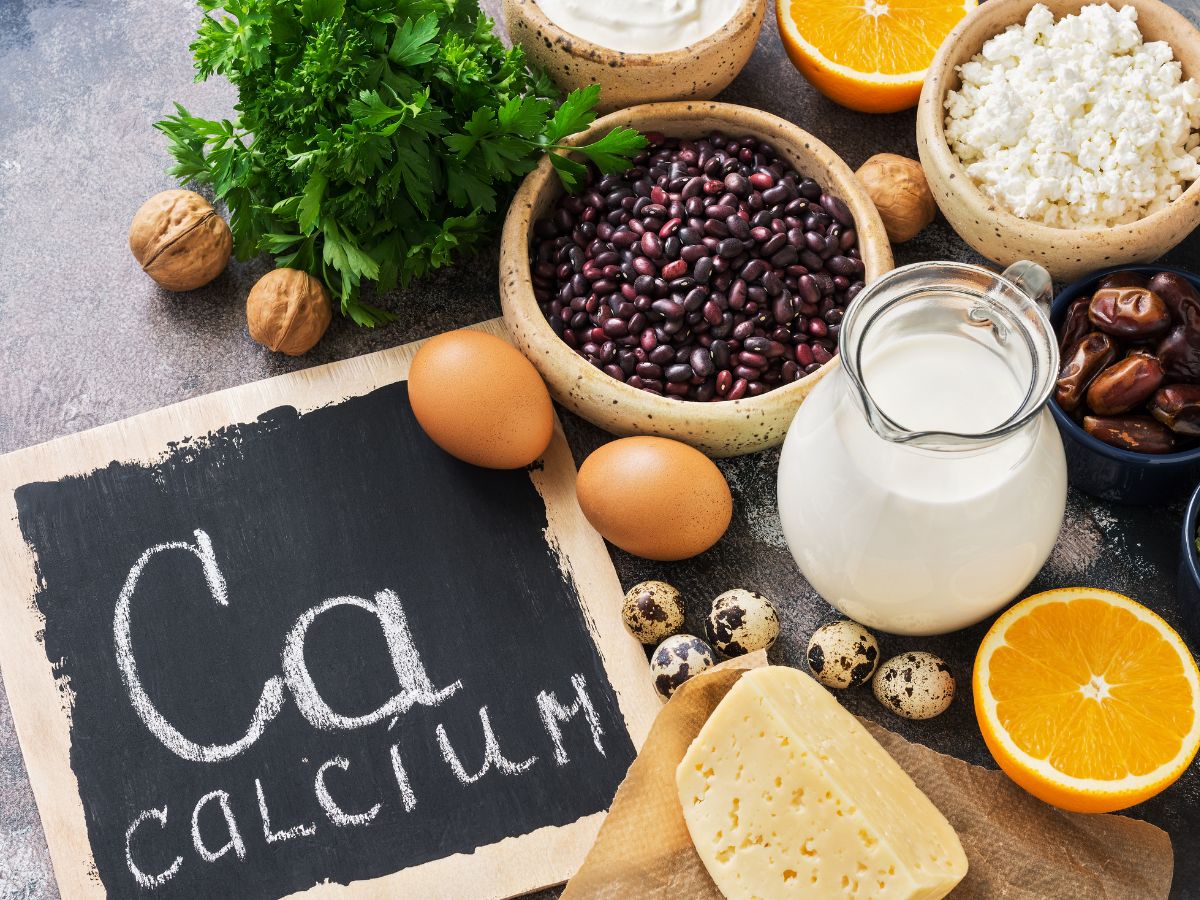
Calcium
You probably know that calcium is important for strong bones and healthy teeth, but calcium also contributes to your heart health and nerve functions, and it plays an important role in blood clotting. The National Institutes of Health recommends that most adults consume 1,000 mg of calcium daily. One cup of cow’s milk provides more than 40% of the recommended dietary allowance.
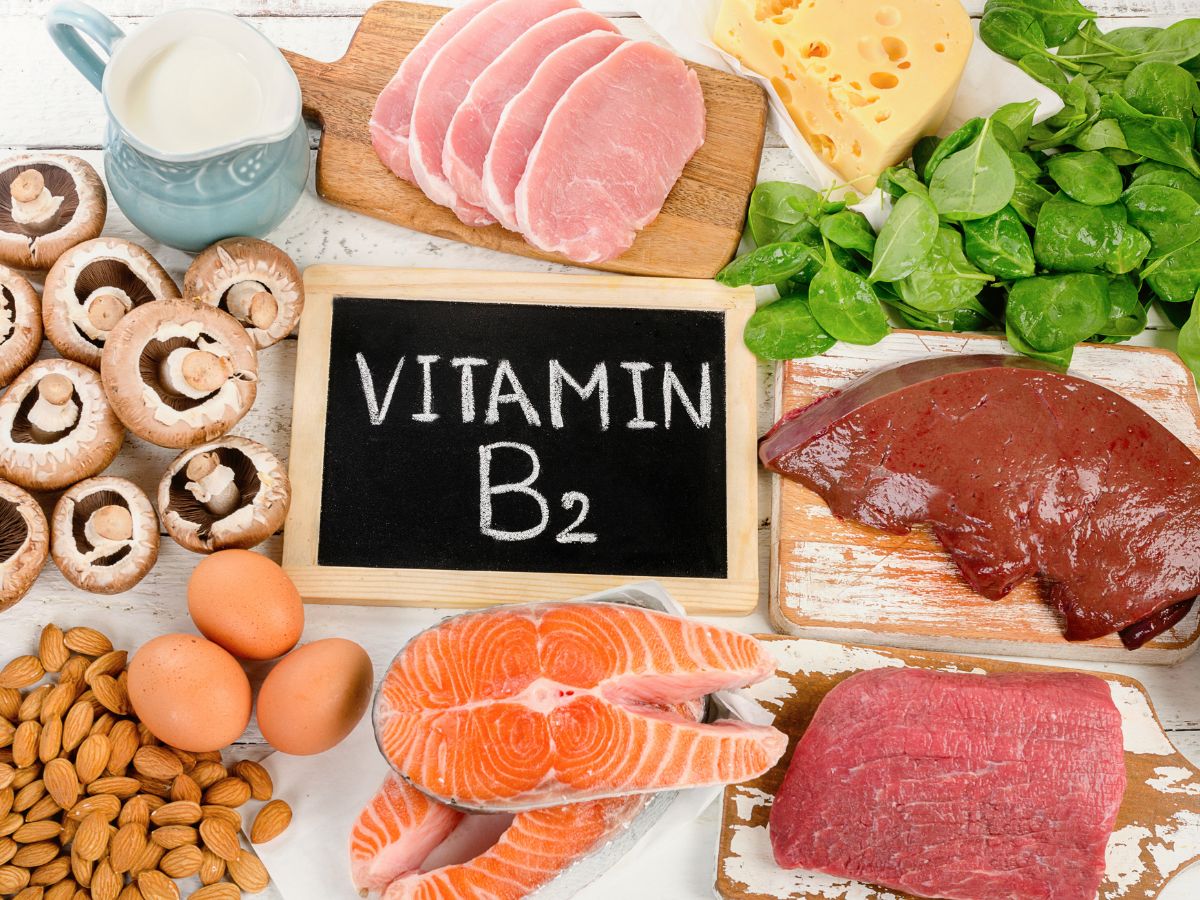
Riboflavin (Vitamin B2)
Vitamin B2, more commonly known as riboflavin, is one of eight B vitamins. A riboflavin deficiency can cause fatigue, blurred vision, and depression. If untreated, brain disorders, heart issues, and some cancers can develop from a long-term riboflavin deficiency. The RDA of riboflavin is 1.1 mg for women and 1.3 mg for men. A cup of cow’s milk delivers about 35% of the RDA.

Vitamin B12
Your body needs vitamin B12 to create red blood cells and keep your brain and nerve cells working properly. Similar to a riboflavin deficiency, symptoms of a vitamin B12 deficiency include fatigue, vision issues, and depression. The RDA for adults is 2.4 mcg, and a cup of cow’s milk provides half that amount.

Vitamin D
Vitamin D helps our bodies absorb calcium, making it an important nutrient for bone health. Because milk is a good source of vitamin D, people who do not consume dairy products are at a higher risk for a vitamin D deficiency. Symptoms include fatigue, hair loss, and muscle weakness. A daily cup of cow’s milk delivers 30% of the recommended 15 mcg of vitamin D.
If you believe you might be deficient in any of these nutrients, contact your health care provider.
Want Alpha-Gal Safe Recipes and More?
Sign up for the weekly newsletter!
Thank You for Subscribing!
About My Rankings
Factors Considered
Because milk is a good source of protein, calcium, and vitamins – especially B2 (also known as riboflavin), B12, and D – I compared each milk alternative to both whole and skim milk. And because 40% of Americans are overweight, and the average American consumes more than five times the RDA of sugar, I also looked at the total calories and grams of sugar per cup.
Products Considered
Like many manufactured products, the ingredients in and nutritional information for alternative milks can vary by product. My assessment automatically excluded any non-dairy milk that includes carrageenan (another alpha-gal trigger). So while one cup of Kirkland signature organic soy beverage from Costco includes seven grams of protein and a decent amount of vitamin D, calcium, and vitamin B12, I excluded it from my evaluation since it also contains carrageenan.
Related Article: What is Carrageenan (And Why Should Alpha Gals Avoid It)?
Alternative Milks That Didn’t Make the Cut

Rice Milk
If you suffer from nut allergies in addition to alpha-gal syndrome, you may already know that rice milk is one of the least allergenic of all non-dairy milks. But one cup of rice milk contains two to three times the calories of nearly any other non-dairy milk.
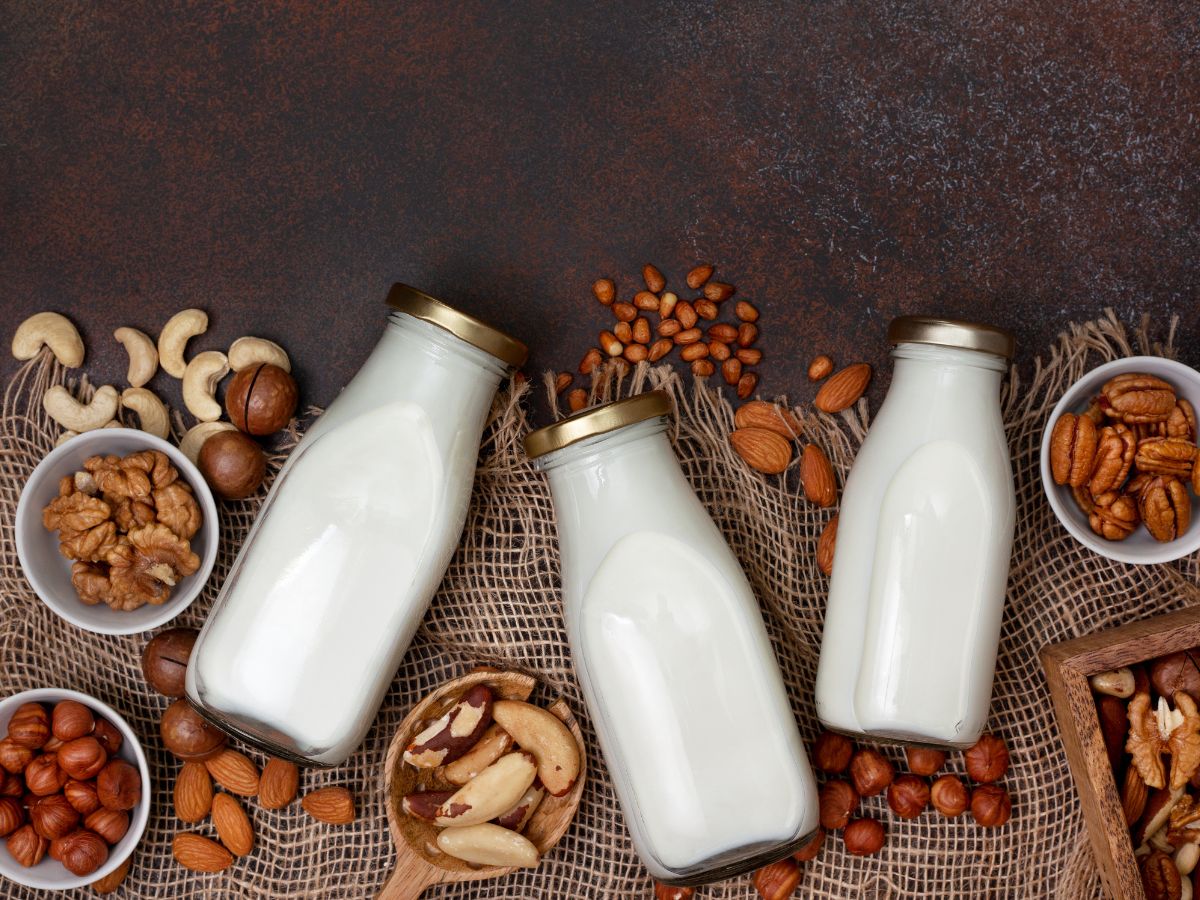
Nut Milks Like Almond Milk, Cashew Milk, and Macadamia Milk
When I was first diagnosed with alpha-gal syndrome, I ignorantly assumed that nut milks would be good sources of protein. After all, whole nuts like almonds and cashews contain six and five grams of protein per ounce, respectively. As it turns out, nut milks are mostly water and are not high in protein.
Sage Advice: Some environmentally conscious alpha gals also prefer to avoid almond products due to the amount of water used to cultivate almonds.
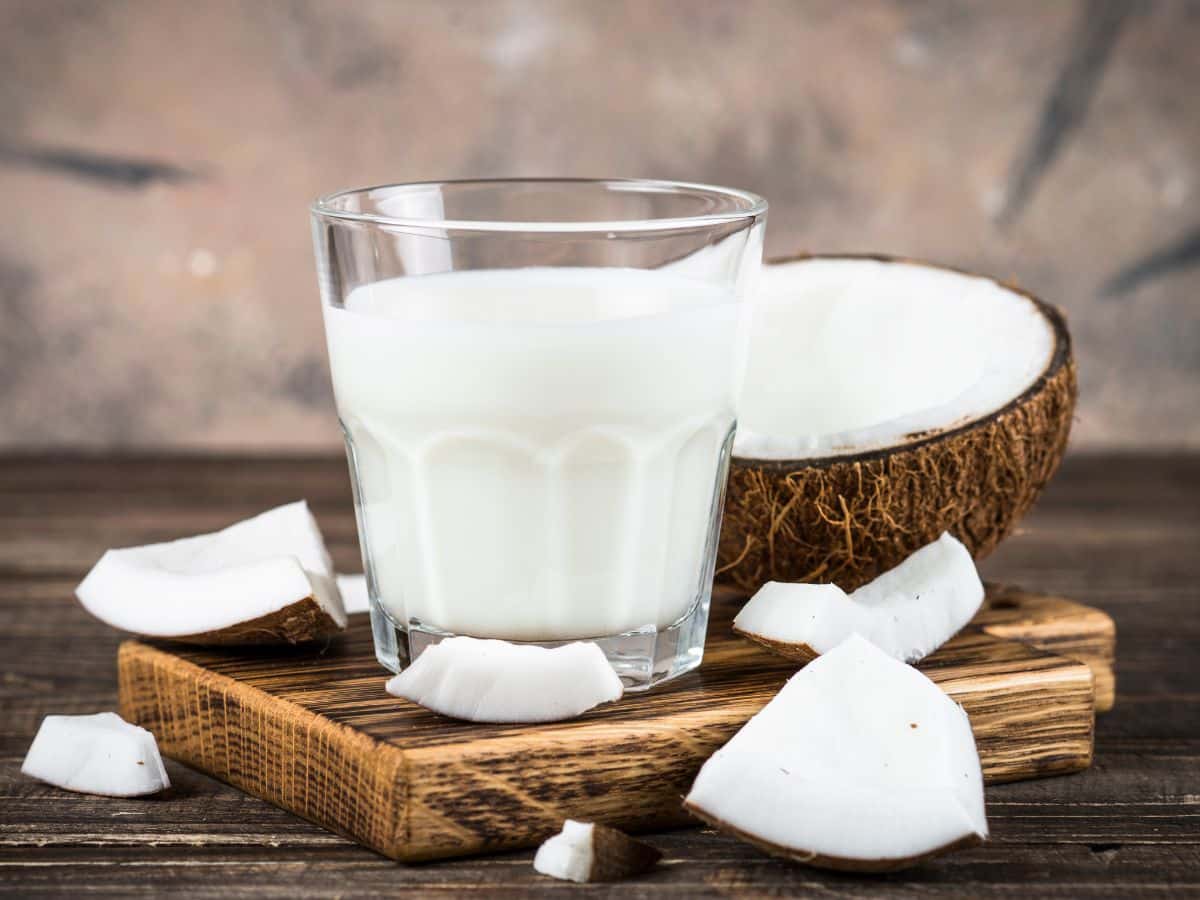
Coconut Milk
This milk alternative is made by grating the white flesh of a coconut and soaking it in hot water. The cream will rise to the top, and the remaining liquid is strained to create coconut milk. While one cup of coconut milk is lower in calories than a cup of skim milk, it has no protein and is lower in calcium than other milk alternatives.
Because of its rich and creamy flavors, coconut milk is a great plant-based milk for drinks like vegan hot chocolate and taro milk tea.

Hemp Milk
This alternative milk is made from hemp seeds that have been soaked and ground in water. With three to four grams of protein per cup, hemp milk has more protein than many of the non-contenders. However, it does not contain riboflavin or vitamin B12.
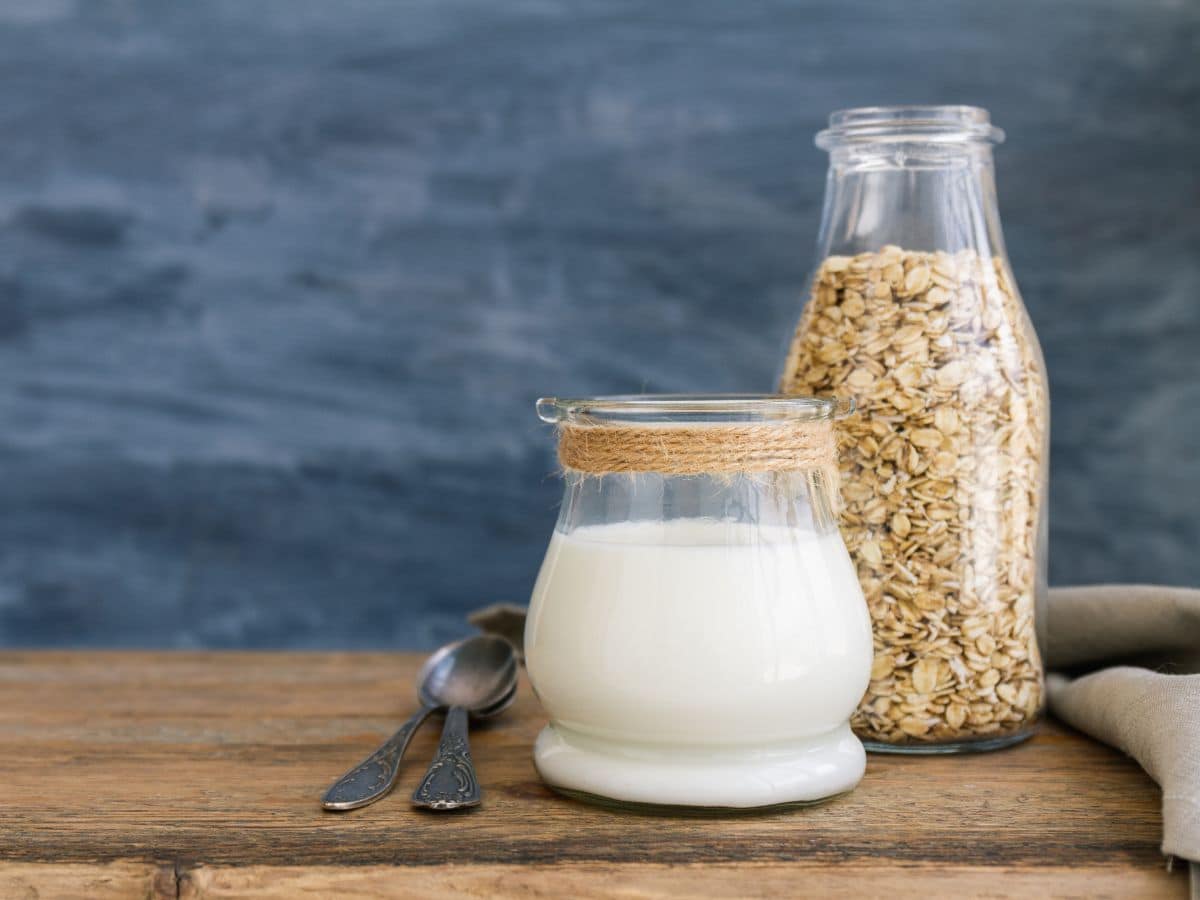
Oat Milk
Made by blending one part rolled oats to four parts water and then straining, oat milk has a mild flavor and thicker consistency than other milk alternatives, making it a great option to pour into your morning coffee. But oat milk is one of the most caloric dairy-free milks, largely due to the seven grams of sugar per cup. And while one serving offers 25% of the RDA of calcium and nearly as much potassium as cow’s milk, it includes no riboflavin or B12.
Best Milk Alternatives for Alpha-Gal Syndrome
Because they provide as much protein and calcium as cow’s milk, along with some riboflavin, vitamin B12, and vitamin D benefits, these are my pics for the best milk alternatives for fellow alpha gals.

3. Flax Milk
In third place, this alternative milk is made from either flaxseed or flax meal and is a good source of protein. I’ve ranked flax milk in third place on this list because it has the highest sodium of the three best milk alternatives for alpha-gal syndrome and lower vitamin B12 and vitamin D than other options.

2. Pea Milk
Unlike nut-based milks, where nuts like almonds or cashews are soaked and blended, pea milk is made by grinding yellow split-peas into a flour. The protein is separated from the pea starch and fiber then added to water. As a result, pea milk has as much protein as cow’s milk. And with 450 mg of calcium and 6 mcg of vitamin D, this brand of pea milk packs more punch than traditional dairy. The only reason it’s not my top alternative milk for alpha gals is due to its lack of riboflavin and vitamin B12.
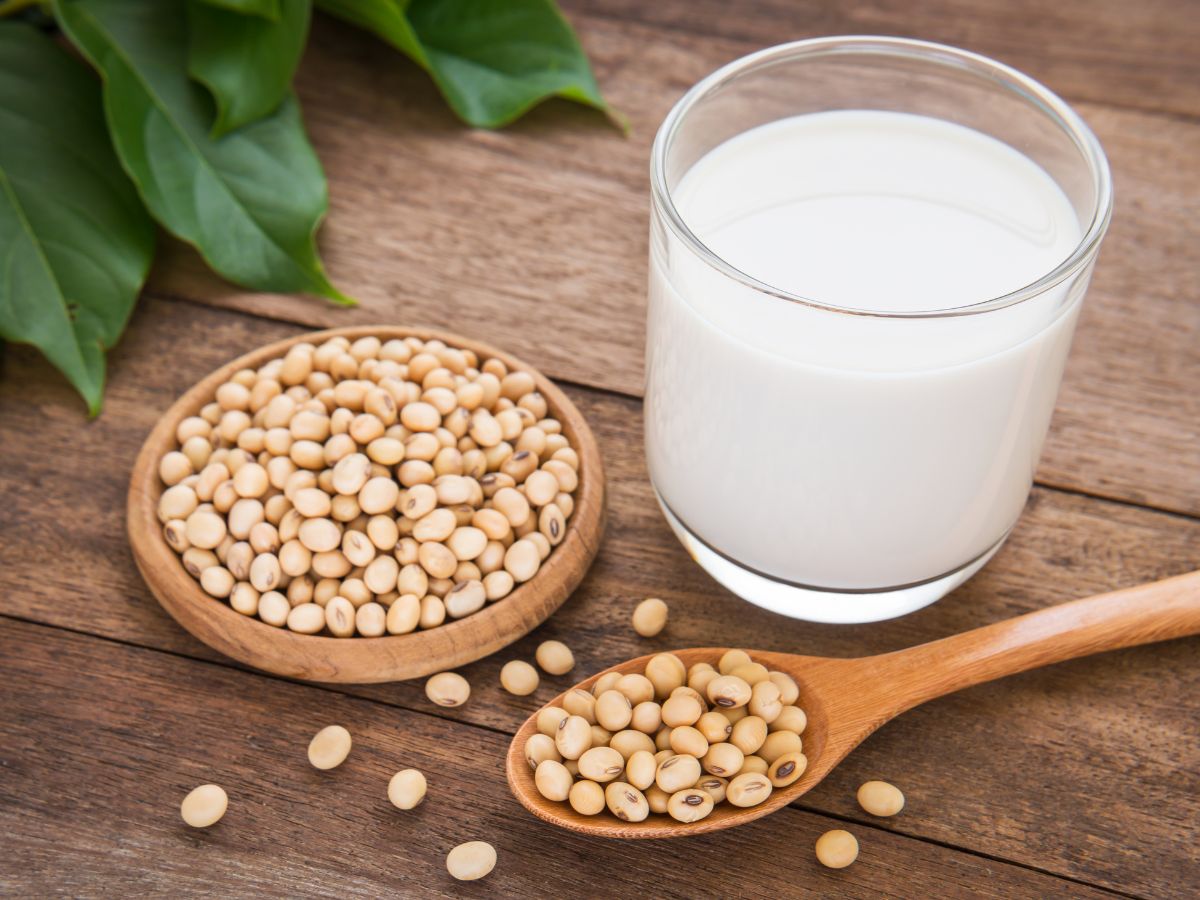
1. Soy Milk
Also known as soymilk (one word) or soya milk, my number one alternative milk pick is made by soaking soybeans, grinding them with water, boiling the mixture, and then straining to remove the remaining solid pieces. And when it comes to the best alternative milk for alpha gals, soy milk is my top pick.
Not only does it have a mild flavor, but soy milk also boasts as much protein and calcium as cow’s milk. But then soy milk goes above and beyond traditional dairy, with more riboflavin and vitamin B12 than whole or skim milk. And while traditional milk is not a source of iron, this brand of soy milk includes 1.1 mg of iron. Because alpha gals can no longer consume red meats like beef, lamb, veal, and pork – all good sources of iron – one cup of soy milk helps women work toward their RDA of 18mg and assists men on their way to an RDA of 8 mg.
Sage Advice: No matter which alternative milk you choose, I recommend selecting an unsweetened flavor to reduce your consumption of added sugar.
Do You Use an Alternative Milk?
What is your favorite non-dairy milk? Why is it your favorite? Do you have any additional tips and tricks to pass along to fellow alpha gals looking to replace dairy in their diets? Share your experiences in the comments section below.

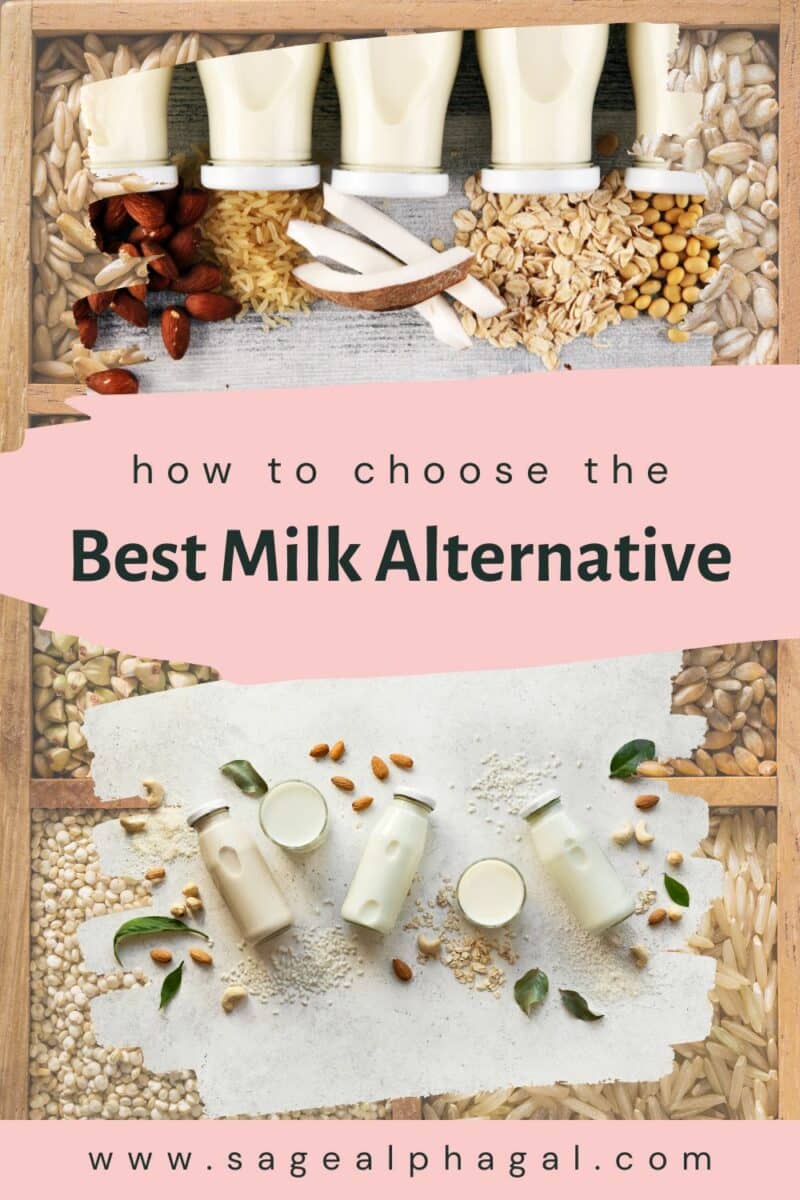

Thank you for sharing!
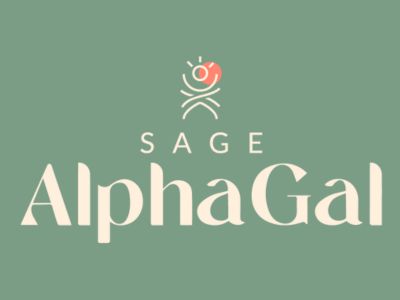

Interesting, learned a lot.Thank you for this analysis, I like that you were able to find an alternative close to the benefits of cow milk but that’s non dairy. I used to drink mainly almond milk but will work to switching to soy and pea milk. Thank you for sharing!
I’m glad you found it helpful! I’ve definitely noticed big benefits from switching from almond milk (no protein) to soy milk and pea milk (about as much protein as traditional dairy).
Interesting! I don’t have alpha gal syndrome but I do like to mix alternative milk into the mix along with our cows or goat’s milk for my family! I like variety in our diets, but understanding the differences in nutrition between alternative milks is great to know 🙂
As a Nutritionist of many years, this is the first time I can remember hearing of Alpha Gal Syndrome. Many of my clients do not tolerate milk and have to resort to nut milks. Thanks for sharing such an informative post. I am very intrigued.
It’s a relatively new syndrome, first identified in 2002. Unfortunately, as temperatures warm across the nation, the lone star tick’s range is expanding and more Americans are living with an alpha-gal allergy.
I found this article about milk alternatives to be very helpful. I don’t have a dairy allergy, and I consume dairy. I eat vegetarian, so I have to ensure I get enough B12.
Thanks for sharing!
Very detailed post. I had no idea there were so many alternatives to dairy milk. My niece is intolerant of milk – I’ll send this her way!
I’m glad it was helpful! Thanks for stopping by and sharing!
I learned so much here! There are many alternatives and this can help a lot of people. Thank you for sharing!
I had no idea what AGS was until I looked it up. Fascinating stuff! We use Almond milk a lot around here, but Flax Milk may be a better alternative for us! Thanks for the info!
I’m so glad it was helpful! Thanks for stopping by and sharing your comment.
I’ve never heard of Alpha Gal Syndrome so this was extremely informative!
Unfortunately, as the lone star tick’s range increases across the United States, it’s becoming more and more common.
Wow I had no idea what Alpha Gal syndrome was until reading this blog. I was just looking for alternatives to cow milk. What an invaluable resource this is. Thank you for the detailed analysis of vitamins and minerals that are essential and that you need to replace if not drinking cows milk.
I’d love to know which milk alternative you choose!
Wow. I don’t know how I’ve never heard of this syndrome. I’m so glad I stumbled upon your blog. Very insightful. I’m bookmarking!
It’s relatively uncommon. But, sadly, as the lone star tick expands its range across the United States, more and more people are developing this food allergy.
Wow…this post is packed with so much information. Thanks for sharing!
Very informative and helpful post!
This is great information. Now I know there are healthy alternatives. Thanks for this.
I’m glad it was helpful!
So much great information here! I’m a big fan of almond milk but I think I’m going to try a few on your recommended list!
Almond milk is definitely a great alternative if you get plenty of protein elsewhere.
Very high in oxalates however. I am prone to kidney stones. I was also concerned about the estrogens in soy milk (which also has moderate level of oxalates). Any thought on best choice for me?
Thanks,
Daniel
Hi Daniel! Kidney stones are so awful. I’m sorry you have to watch out for them! According to a research report published on the National Library of Medicine site, “Coconut and flax milk have undetectable oxalate levels; coconut milk also has comparatively low sodium, calcium and potassium, while flax milk has the most sodium.” You can read more here. I hope that’s helpful!
Found your site and love it so far – BUT have to disagree on this one. Soy milk is sooooo not good for you overall.
I totally appreciate where you are coming from, and I know many people who share your view point. Personally, I’ve opted for an “everything in moderation” approach to soy milk, ensuring that I don’t consume a lot of other soy-based products (with the exception of edamame which I also eat in moderation), and it’s worked well for me. Thank you so much for stopping by and sharing your perspective! <3
After suffering for months, and having several unsuccessful diagnoses, I’m finally being tested for Alpha Gal. Thank you for doing so much work…I was feeling very overwhelmed after googling this syndrome and thinking about how this will change my life. I’m encouraged to see that you have taken steps to be the healthiest you can be and graciously shared your knowledge! I’m hoping mine will be one that goes away and hoping the same for you.
Hi Mitzi! Sending you a big hug from Kansas City as you await the test of your results. Keep me posted on how you’re doing!
I also have alpha-gal and I also have the FIG app. As I read through this page it appeared helpful but as far as mild alternative you graded the lack of Vit B-12 and Riboflavin (Vit B-2). On FIG app it shows Riboflavin is normally vegan but may be derived from or processed with non-vegan sources such as mammalian by products. I have heard if it says vegan or organic it cannot legally contain it however I have also read organic is 95% organic and 5% nonorganic allowed by FDA. It is such a slippery slope and although I am working diligently to avoid all these things it feels hopeless most times because something is still triggering me shortly after eating. I’ve heard acupuncture is a good alternative to help with symptoms. Here’s hoping for a breakthrough to cure this nasty illness.
I am so glad to meet you! We live south of you in a rural area where I love the outside world and get many tick bites each year. I had alpha gal for a least 2 years before being diagnosed. I have tried a few alternatives but I can’t do soy and need to limit nuts. I had a reaction last night I think to coconut milk since that was the only new food. Have you heard of reactions to guar gum or gellan gum?
Thanks!
Hi Lea! Thanks for stopping by and sharing your story. Yes, some alpha gals do have sensitivities to gums. I *just* read a great explanation about *why* and just spent a little time trying to find it again so I could share it with you, but no luck. Darn it! I’ll keep looking, and if I find it, I’ll either post it here or email it to you. Hope that helps! Sage.